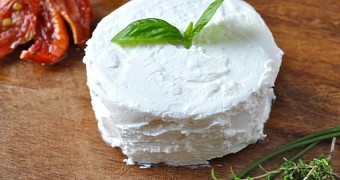Let's face it, chances are that it will be a cryogenic day in hell before we find the key to staying young forever. Then again, it looks like we are making considerable progress when it comes to keeping anything but ourselves fresh and youthful for longer.
Not to beat about the bush, it was earlier this week that scientists with Spain's Universitat Politècnica de València announced the development of a new type of antimicrobial coating that they say can increase the lifespan of soft cheese.
How and why cheese goes bad
In a report documenting their work, the scientists who worked on this research project explain that, more often than not, soft cheese can stay fresh for about 21 days, if and only if kept in cold storage.
Mind you, soft cheese would have an even shorter lifespan, were it not for an antibiotic dubbed piramicin, which is added to it to control the growth of yeasts and molds on its surface. The same antibiotic helps keep meat and sausages fresh.
As detailed by the Universitat Politècnica de València specialists, soft cheese goes bad for one or both of the following reasons: loss of water at the surface and the growth of all sorts of nasty microorganisms on it.
“The most common causes of deterioration are excessive surface dehydration and the growth of micro-organisms such as fungus or yeasts, which produce a strange flavour or odour, a slimy texture and a significant visual alteration,” says researcher Chelo González.
Keeping cheese fresh for longer
The coating developed by scientist Chelo González and fellow researchers is made with essential oils extracted from oregano and rosemary, which act as antimicrobial agents. It also contains chitosan, which is obtained from crustacean shells and which acts and an antibacterial agent as well.
This novel coating created by the Universitat Politècnica de València specialists is argued to be a safe and effective alternative to the pimaricin and the polyvinyl acetate plastic currently used to increase the lifespan of soft cheese, Science Daily explains.
More so given the fact that, according to the scientists who developed it, it is not just edible but also likely to make cheese taste better than it would if left untreated. As specialist Chelo González put it, “The product that we have obtained is an alternative to the use of pimaricin and non-edible plastics.”
The researchers argue that, were their coating to be used on a large scale, cheese factories would have an easier time keeping their products fresh and fungus-free during maturation processes. This would translate into considerable economic gains.

 14 DAY TRIAL //
14 DAY TRIAL // 



